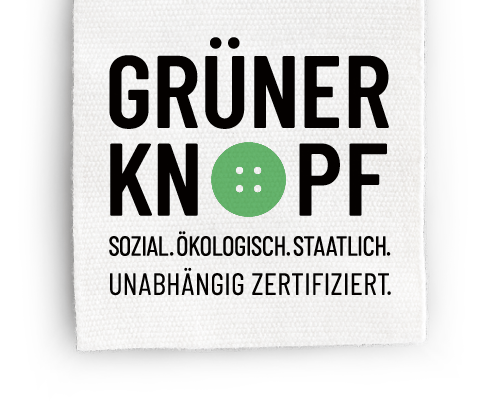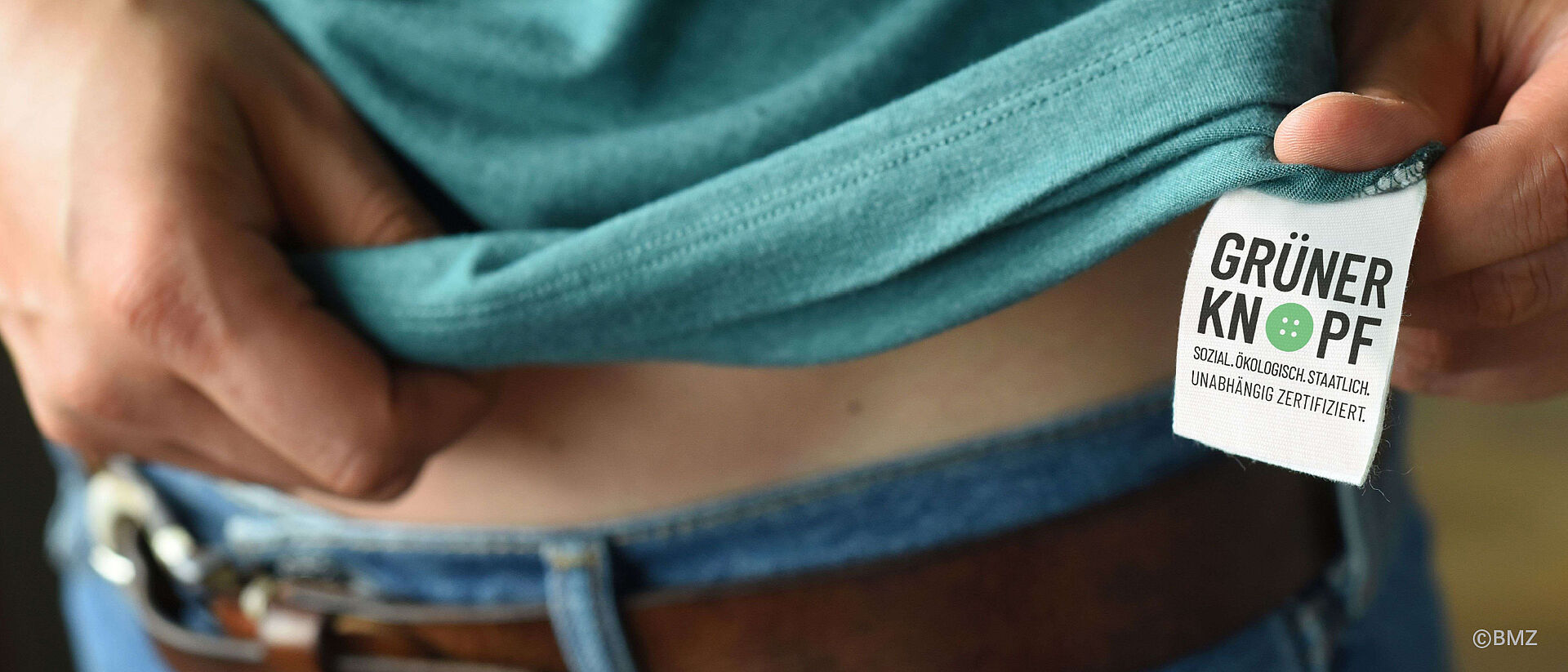
What is the Green Button?
The Green Button is a state seal for sustainably produced textiles. It sets binding requirements to protect people and the environment in the production process of textiles. What is special about the Green Button is that, in addition to the product, the company as a whole is always inspected.
Companies that want to certify their products with the Green Button must comply with demanding requirements for corporate due diligence processes as well as additional requirements for products and production.
The German state sets the criteria and conditions for the Green Button. Independent testing bodies such as Hohenstein, which are approved and trained by the BMZ, monitor compliance with the criteria.
With us you benefit twice!
Hohenstein is authorised to test companies and products for compliance with the criteria for awarding the Green Button textile label:
We are a certification body approved by the German Federal Ministry for Economic Cooperation and Development (BMZ).
As a certification body in accordance with DIN EN ISO/IEC 17065, we are also accredited by the German Accreditation Body (DAkkS) to award the seal.
Company audits
Hohenstein has many years of global expertise in auditing companies along the entire textile chain as well as product testing in accordance with international certifications, labels and initiatives for sustainability.
Product verification
The Green Button recognises three OEKO-TEX® product labels as credible reference seals for the verification of the required criteria. As an OEKO-TEX® founding member, Hohenstein has been jointly responsible for the development of these labels since 1992 and has issued the most certificates for them worldwide.
OEKO-TEX® reference seals recognised by the Green Button
MADE IN GREEN serves as proof of the following requirement levels for the Green Button:
- Making-up of ready-made goods ✔
- Wet processes ✔
- In the area of fibre and material use for:
Virgin polyester ✔
Proof of organic cotton ✔
Proof of recycled content ✔
The Green Button recognises the STANDARD 100 as proof of the following requirements:
- In the area of fibre and material use for:
Virgin polyester ✔
Proof of organic cotton ✔
Proof of recycled content ✔
The Green Button accepts the ORGANIC COTTON certification as proof of the following requirements:
- In the area of fibre and material use for:
Proof of organic cotton ✔
The Green Button - get started now!
Visit the Green Button website for all details about the certification scheme:
